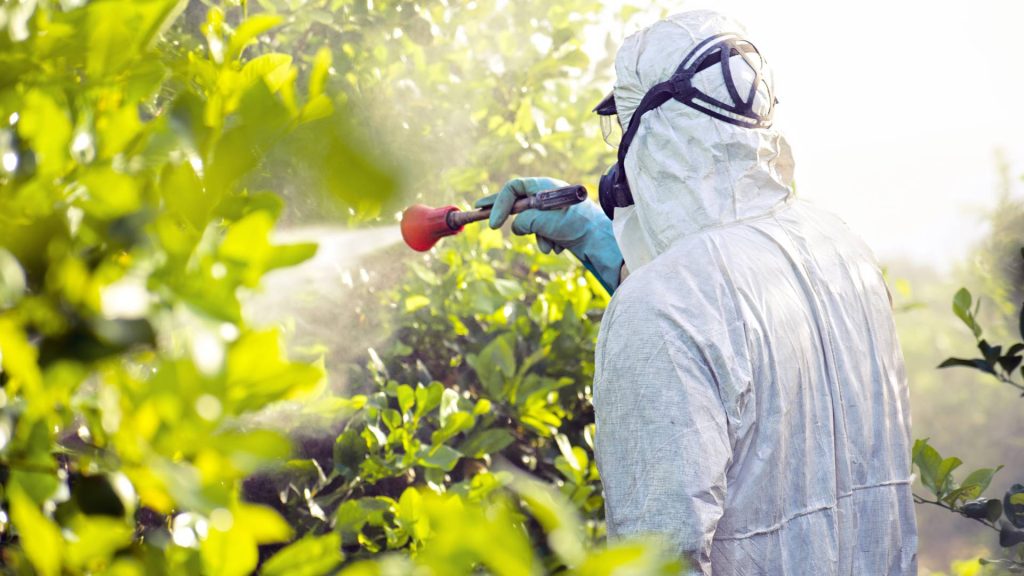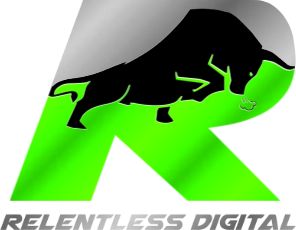Read What Our HVAC Contractors Say About Working With Us

Pest Control SEO: How To Optimize Your Website For Maximum Visibility
Harnessing the power of Search Engine Optimization (SEO) isn’t just for bloggers and online retailers – it’s a must for all businesses, including those in pest control services. If you’re struggling to attract more customers, it may be because your business isn’t appearing high enough in search results.
In the booming world of digital marketing, having an optimized website for your pest control business can be the catalyst that propels you to the top of search engine rankings. Welcome to a thrilling journey where we’re about to explore how to optimize your pest control website for maximum visibility using SEO strategies, ensuring that when potential clients have an infestation problem, they’ll find your solution first!
Pest control companies can benefit significantly from SEO by improving their website’s ranking on search engine results pages, attracting more qualified leads, and establishing themselves as authoritative sources in the industry. SEO tactics such as on-page optimization, off-page optimization, keyword research, and content marketing can all contribute to the success of a pest control company’s digital marketing campaign. By implementing a competitive SEO strategy that follows best practices, pest control companies can maximize the benefits of SEO and get ahead of the competition.
Understanding Pest Control SEO
In today’s digital world, where online presence is vital for businesses to thrive, understanding Pest Control SEO is crucial for success in the industry. SEO, or Search Engine Optimization, refers to the process of optimizing your website and its content to improve its visibility and ranking on search engine results pages (SERPs).
By incorporating targeted keywords, optimizing on-page elements, and implementing various strategies, you can enhance your online presence and attract more qualified leads.
But what does Pest Control SEO entail? At its core, it involves ensuring that when people search for pest control services or related topics on search engines like Google, your website appears prominently in the organic search results.
It goes beyond simply having an aesthetically pleasing website; it’s about structuring and presenting valuable content in a way that aligns with what users are searching for.
To further illustrate this point, let’s consider an example. Imagine you’re a pest control company operating in a specific city. When potential customers search for “pest control services ” or “how to get rid of ants,” you want your website to be among the top results.
This is where Pest Control SEO comes into play – by optimizing your website with relevant keywords and high-quality content, you increase the chances of appearing at the forefront of those search results.
Now that we have a general understanding of Pest Control SEO, let’s explore why it is so important for companies in this industry.
Understanding Pest Control SEO is crucial for success in the pest control industry. By optimizing your website with relevant keywords and high-quality content, you can increase its visibility and ranking on search engine results pages (SERPs), which ultimately translates to attracting more qualified leads. It’s not just about having an aesthetically pleasing website but rather structuring and presenting valuable content in a way that aligns with what users are searching for. Overall, investing time and resources into Pest Control SEO can significantly enhance your online presence and help your business thrive in the digital world.


Importance Of SEO For Pest Control Companies
Imagine this scenario: you own a reputable pest control company that offers efficient and reliable services in your area. However, despite having exceptional expertise and a strong customer base through referrals, you’re struggling to reach new clients online. This is precisely where SEO becomes crucial for pest control companies.
With 97% of users heading online to research local services, online search has become the primary method for finding pest control businesses. If your website isn’t optimized for SEO, you could be missing out on a vast pool of potential customers who are actively seeking the services you provide.
But why is SEO important specifically for pest control companies? Firstly, Pest Control SEO improves lead generation by increasing your online visibility.
When your website ranks higher in search results, it attracts more organic traffic, resulting in a higher chance of conversions and new customers. By strategically targeting keywords related to pest control services in your area, you position yourself as a trusted source of information and can drive relevant traffic to your site.
For instance, if someone searches for “termite exterminator,” and your website appears at the top of the search results with informative content about termite treatment options, the user is more likely to explore your website and reach out to you for assistance.
Secondly, an effective SEO strategy reaches people at the right time. When individuals are searching for a solution to their pest problems, they are likely to have a sense of urgency. By optimizing your website with localized keywords and valuable content that address common pest issues, you can appear in front of potential customers precisely when they need your services.
Lastly, SEO helps establish credibility and trust. When users find your website ranking highly on search engine results pages, it reflects positively on your company’s reputation.
Additionally, publishing high-quality content in various formats such as blogs, articles, and videos not only helps educate users but also positions you as an authority in the industry. This builds trust among prospective customers who are looking for reliable pest control solutions.
Now that we recognize the importance of Pest Control SEO, let’s dive into mastering the techniques of on-page optimization – a fundamental aspect to boost your online visibility and attract qualified leads.
Mastering On-Page SEO For Pest Control
In the vast realm of search engine optimization (SEO), on-page SEO plays a crucial role in improving your website’s visibility and attracting more organic traffic. When it comes to pest control, mastering on-page SEO techniques is essential for maximizing your online presence. By optimizing key elements on your webpages, you can make a strong first impression with search engines and potential customers alike.
When it comes to on-page SEO, there are several important aspects to consider, including title tags, URLs, and content optimization. Let’s dive deeper into each of these elements to understand how to optimize your website effectively.
According to HubSpot, businesses that prioritize blogging are 13 times more likely to achieve a positive ROI on their efforts, indicating the importance of high-quality content in an SEO strategy for pest control companies.
BrightLocal’s Local Consumer Review Survey (2023) indicates that 97% of consumers use the internet to find local services, highlighting the relevance of local SEO principles like Google My Business optimization and consistency in citations.
A study by Backlinko shows that long-tail keywords have a 3-5% higher click-through rate than generic searches, which underlines the importance of thorough keyword research in a pest control company’s SEO strategy.


Optimizing Title Tags, URLs, And Content
Every webpage should have clear and concise title tags that accurately describe its content. These title tags influence how search engines display your page in search results. To optimize your title tags for maximum visibility, ensure that they are both descriptive and relevant to the content of the page. Additionally, incorporating targeted keywords at the beginning of the title can help improve search engine rankings.
Let’s take an example: You own a pest control company in New York City that specializes in bed bug removal services. Instead of a generic title tag like “Services,” optimize it by using a more targeted and descriptive title like “Bed Bug Removal Services in New York City – Your Company Name.” This specific and keyword-rich title tag would give search engines a clear understanding of your page’s content.
Next, let’s talk about URLs. While URLs may not be a major ranking factor, they still contribute to user experience and click-through rates. It’s crucial to create clear and user-friendly URLs that accurately reflect the content of each page. For example, instead of a vague URL like “www.yourcompany.com/services/page123,” opt for something more descriptive like “www.yourcompany.com/bed-bug-removal-services-nyc.”
When it comes to the actual content on your webpages, quality is key. Publishing high-quality and informative content is not only valuable to your visitors, but it also helps establish your authority in the industry. Consider creating various formats of content such as blog posts, articles, videos, or infographics. These different formats can cater to different types of audience preferences and engage them on multiple platforms.
Additionally, incorporating relevant keywords naturally throughout your content can help search engines understand what your webpage is about, boosting its visibility. However, be cautious not to overuse keywords, as this can lead to keyword stuffing, which search engines penalize.
Remember that professional and well-written content will also appeal to your readers and encourage them to share your expertise with others, potentially increasing your website’s visibility through word-of-mouth and social media.
For instance, you could create a blog post about effective prevention methods for pests in residential areas or a video showcasing different types of pest control techniques. By providing valuable and engaging content, you position yourself as an authoritative source in the field of pest control.
By mastering these on-page SEO techniques – optimizing title tags, URLs, and content – you lay a strong foundation for improved search engine rankings and increased online visibility for your pest control company.
Navigating Off-Page SEO For Pest Control
In the realm of search engine optimization (SEO), off-page optimization plays a critical role in improving the visibility and credibility of your pest control website. Unlike on-page optimization that focuses on optimizing elements within your website, off-page SEO involves factors outside of your direct control but strongly influence your online presence. Let’s navigate through the world of off-page SEO specifically for the pest control industry.
One key aspect of off-page SEO is building external links to your website. External links are hyperlinks from other websites that point back to your site. These links act as endorsements and show search engines that others find value in your content, which can improve your website’s authority and rankings.
For instance, imagine you write a comprehensive blog post about effective DIY pest control methods, and a reputable pest control association or blogger references and links to your article as a valuable resource. This referral link not only brings targeted traffic but also signals to search engines that your content is trustworthy and relevant.
As a pest control business owner, building relationships with authoritative websites in the industry can significantly impact your off-page SEO efforts.
Another important off-page SEO factor is leveraging social media profiles. Social media platforms like Facebook, Twitter, Instagram, and LinkedIn provide opportunities to engage with potential customers, increase brand awareness, and even build external links indirectly.
Engaging with relevant communities, sharing informative content, offering expert advice, and interacting with users can help establish trust and generate social signals. These social signals indicate to search engines that people are engaging with your brand, increasing the likelihood of higher rankings.
By regularly posting helpful tips for preventing common pests or showcasing success stories from satisfied clients on social media platforms, you attract more followers who may be potential customers searching for pest control services.
Overall, investing time and effort into navigating off-page SEO strategy is crucial for maximizing the online visibility of your pest control business. By building external links from reputable sources and actively engaging with social media profiles, you can enhance your website’s authority, increase traffic, and attract more potential customers.
Now that we’ve explored the importance of off-page SEO, let’s dive deeper into the specific role of external links and social media profiles in boosting your website’s visibility and online presence.


Role Of External Links And Social Media Profiles
External links are like virtual endorsements that vouch for the credibility and relevance of your pest control website. Search engines view websites with a significant number of high-quality external links as trustworthy sources for valuable information. When other reputable websites link to your content, it signals to search engines that your website is reliable and informative.
The more relevant and authoritative the linking website is, the greater impact it will have on your SEO efforts. A link from an industry-leading organization or an influential pest control blog holds more weight than multiple links from low-quality or unrelated websites.
By proactively reaching out to relevant websites, influencers, or industry partners, you can establish valuable relationships that may lead to natural backlinks to your site. For example, collaborating with a local home improvement blog on an article about preventing house pests can result in them linking back to your website as a trusted pest control resource.
Imagine you run a pest control company in Miami, Florida. Collaborating with a regional gardening association to write an article about controlling garden pests can not only provide valuable tips for readers but also create an opportunity to gain exposure by having them link back to your website.
Social media profiles also play a crucial role in off-page SEO for pest control businesses. Building a strong social media presence allows you to engage directly with potential customers, showcase your expertise through informative content, and foster positive interactions with followers.
By regularly sharing educational content such as videos demonstrating effective pest control methods or before-and-after pictures of successful pest eradication, you can position yourself as a reliable source of information and build trust with your audience. Encouraging followers to share your content further expands your reach, potentially leading to more external links and increased visibility.
In today’s digital age, where social media platforms are widely utilized by individuals searching for services, having active profiles reinforces the credibility of your pest control business. When potential customers see that you actively engage on social media, respond promptly to inquiries, and provide valuable insights, it enhances the perception of your professionalism and reliability.
Implementing Google My Business In Your SEO Strategy
With Google My Business (GMB) playing an increasingly vital role in local search and SEO, it is crucial to integrate it into your overall strategy. By utilizing GMB effectively, you can enhance your online visibility and connect directly with potential customers. Let’s explore some key steps for implementing Google My Business SEO strategy.
First and foremost, ensure that you claim and verify your Google Business Profile. This step is essential as it allows you to control the information displayed on your business listing and make updates as needed. Having an accurate and up-to-date profile is crucial for attracting potential customers and improving search rankings.
Once you have claimed your Google Business Profile, optimize it with relevant keywords and compelling content. Incorporate location-specific keywords within your business description, services, and posts. This will help search engines understand the relevance of your business to local searches and boost your visibility in those results.
For instance, if you are a pest control company in Los Angeles, include keywords such as “pest control Los Angeles” or “termite extermination services LA” within your profile to increase the chances of appearing in related search results.
In addition to optimizing your profile, leverage the various features offered by Google My Business to engage with users. The platform allows you to interact directly with customers through messaging, respond to reviews, and post regular updates such as promotions or events. Engaging with users not only helps build a positive reputation but also signals to search engines that you are an active and trusted business.
Furthermore, regularly posting valuable content on your GMB listing can significantly impact your local SEO efforts. These posts can include information about new services or products, helpful tips related to pest control, or even customer success stories. By providing relevant and engaging content, you increase the likelihood of attracting users’ attention and encouraging them to click through to your website.
Just like a well-maintained garden attracts more bees, a consistently updated GMB profile with informative and engaging content entices potential customers to explore your business further.
Lastly, take advantage of the insights and analytics provided by Google My Business. These valuable data points offer insights into how users are finding and interacting with your listing. By analyzing this information, you can optimize your SEO strategy further by identifying trends, understanding customer preferences, and fine-tuning your overall approach.
By implementing these strategies and leveraging the power of Google My Business, you can establish a strong online presence and improve your visibility in local search results. Remember, consistency and relevance are key to maximizing the benefits of this powerful tool.
The use of Google My Business in your SEO strategy not only helps boost your online visibility but also enables you to connect directly with potential customers. By claiming and optimizing your profile, engaging with users through messaging and posts, as well as analyzing valuable insights, you can enhance your local SEO efforts and drive meaningful results for your pest control business.


